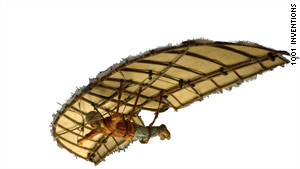But in fact, Yemen is where the ubiquitous brew has its true origins.
Along with the first university, and even the toothbrush, it is among surprising Muslim inventions that have shaped the world we live in today.
The origins of these fundamental ideas and objects -- the basis of everything from the bicycle to musical scales -- are the focus of "1001 Inventions," a book celebrating "the forgotten" history of 1,000 years of Muslim heritage.
"There's a hole in our knowledge, we leap frog from the Renaissance to the Greeks," professor Salim al-Hassani, Chairman of the Foundation for Science, Technology and Civilisation, and editor of the book told CNN.
"1001 Inventions" is now an exhibition at London's Science Museum. Hassani hopes the exhibition will highlight the contributions of non-Western cultures -- like the Muslim empire that once covered Spain and Portugal, Southern Italy and stretched as far as parts of China -- to present day civilization.
Here Hassani shares his top 10 outstanding Muslim inventions:
- Surgery
- Coffee
- Flying machine
- University
- Algebra
The word algebra comes from the title of a Persian mathematician's famous 9th century treatise "Kitab al-Jabr Wa l-Mugabala" which translates roughly as "The Book of Reasoning and Balancing." Built on the roots of Greek and Hindu systems, the new algebraic order was a unifying system for rational numbers, irrational numbers and geometrical magnitudes. The same mathematician, Al-Khwarizmi, was also the first to introduce the concept of raising a number to a power.
- Optics
"Many of the most important advances in the study of optics come from the Muslim world," says Hassani. Around the year 1000 Ibn al-Haitham proved that humans see objects by light reflecting off of them and entering the eye, dismissing Euclid and Ptolemy's theories that light was emitted from the eye itself. This great Muslim physicist also discovered the camera obscura phenomenon, which explains how the eye sees images upright due to the connection between the optic nerve and the brain.
- Music
Muslim musicians have had a profound impact on Europe, dating back to Charlemagne tried to compete with the music of Baghdad and Cordoba, according to Hassani. Among many instruments that arrived in Europe through the Middle East are the lute and the rahab, an ancestor of the violin. Modern musical scales are also said to derive from the Arabic alphabet.
- Toothbrush
- The crank
Many of the basics of modern automatics were first put to use in the Muslim world, including the revolutionary crank-connecting rod system. By converting rotary motion to linear motion, the crank enables the lifting of heavy objects with relative ease. This technology, discovered by Al-Jazari in the 12th century, exploded across the globe, leading to everything from the bicycle to the internal combustion engine.
- Hospitals
http://www.cnn.com/2010/WORLD/meast/01/29/muslim.inventions/index.html

No comments:
Post a Comment